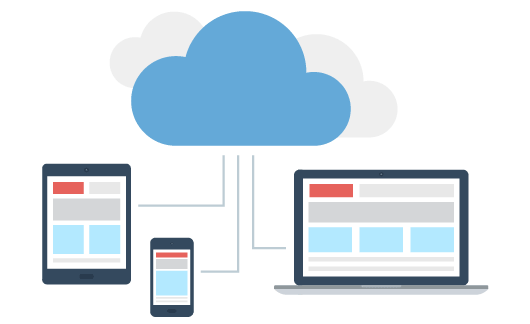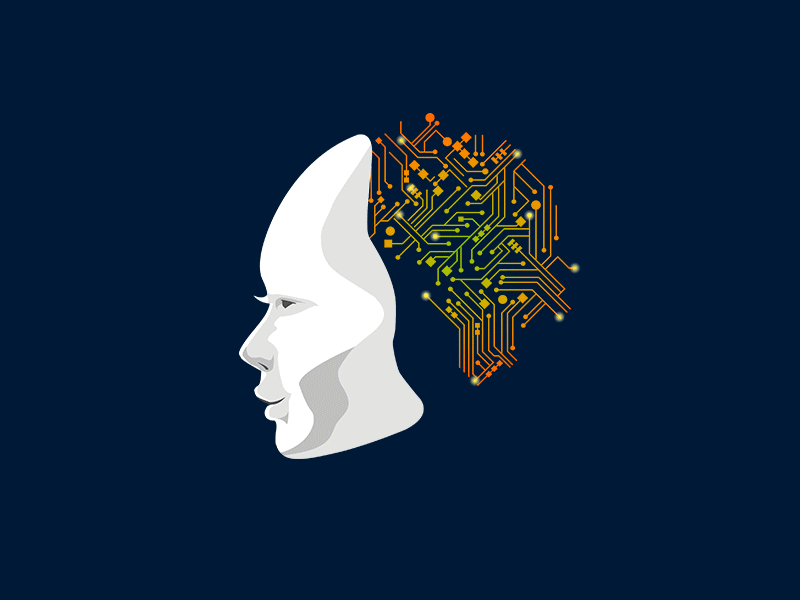When technology is mentioned, it is typically not far behind. Whether it’s the Internet of Things (IoT), the cloud, or artificial intelligence (to mention a few), technology is transforming how businesses operate throughout the world. While technology undoubtedly plays a role in digitalization, there are other important issues that must come first in any digitalization plan. Generating value-driven business objectives and cultivating a process of innovation and cooperation are two of them.
Some next-gen technologies your business is missing out on:
Mobile
Over the previous two decades, mobile has had a persistent influence on the world we live in. From enhanced connectivity to sophisticated technology at our fingertips, the mobile influence penetrates our daily lives.
Mobile phones have a lot of promise for industrial and manufacturing enterprises, especially with 5G capabilities on the horizon. Mobility is important to 81 percent of manufacturing CEOs, which is predictable.
Mobile is a key technology that enables game-changing advances in a variety of ways. As mobile becomes even more powerful with 5G, there will be ripple effects across the industrial economy. Robotics and automation will be better connected in the factory, and real-time analytics from field operations will be faster.
Cloud
The manufacturing industry has been cautious to adopt cloud computing, particularly in discrete and process-oriented businesses. There are a variety of reasons for this hesitancy, ranging from legacy system integration issues to security concerns to assuring business continuity.
With fresh breakthroughs in cloud technology and execution, such fears are diminishing. According to research released earlier this year, by 2020, the manufacturing industry will have outpaced the average use of the hybrid cloud. According to The Economist, 78 percent of respondents believe cloud adoption in the manufacturing industry will be significant.
factor in five years.

loT
The Internet of Things is giving manufacturers unparalleled access to their goods and processes., by the end of 2019, about 75 percent of big manufacturers implemented IoT and analytics-based situational awareness in their operations. Industrial IoT technology is being used by these big firms to acquire a better knowledge of their operations on a global and factory level.
Manufacturers are gaining vital insights and analytics from the Internet of Things.
Increased efficiency, flexibility to adapt more rapidly to market and customer needs, and innovation across their goods and services are all goals of digital transformation.
Robotics
One out of every four firms is using smart robots now, with one out of every three doing so in the next two years. Robotics is being used for more analytics-based operations, which are aided by complementing technologies like IoT, sensors, and artificial intelligence. In terms of digital transformation, robotics may help drive operational efficiency while also freeing up humans to focus on higher-level work.
Machine Learning and Artificial Intelligence
Artificial Intelligence and Machine Learning will rise in manufacturing over the next five years, to around $17 billion in annual worldwide expenditure.
The exponential growth of data and access to data, as well as processing power and connection, has fueled this trend. Artificial intelligence is allowing analytics and insights that were previously unavailable to be accessed. As a result, new approaches to and solutions to issues are emerging. For instance, in generative design, Al is used to swiftly optimize designs based on a set of system design criteria. It generates solutions that would require hours (or even days) of technical labor.

Augmented Reality
Augmented reality (AR) enables more seamless interactions across the physical, digital, and human worlds.
“AR is loT for humans,” stated PTC President and CEO Jim Heppelmann. “When frontline personnel wears Microsoft HoloLens, they can connect to their physical surroundings and access all of the power of data and analytics in the cloud,” says the company.
This is only one example of augmented reality’s rising popularity in the industrial sector. Business AR benefits include increased worker performance and efficiency, innovative solutions, next-generation human-machine interfaces, transfer of knowledge and training, and new customer support and services.
Additive Manufacturing
It is the process of creating an object one thin layer at a time (also known as 3D printing). The market for additive manufacturing will reach $20 billion next year and $250 billion by 2025, according to McKinsey. As industrial organizations seek efficiency, additive manufacturing is significant across the value chain, not only in manufacturing. Customers – or field operations – may be able to “print” replacement parts for a machine, resulting in more efficient and fluid customer service. It reduces downtime and lowers costs. By employing the digital thread as a single source of truth, this additive manufacturing use case is enabled, and value chain functions are consolidated.
How can you bridge the gap?
Sizing up the problem
Companies must invest more in enabling their staff to reskill, beginning now, to solve the problem. It’s all about the timing. According to the World Economic Forum, more than half of all employees (54 percent) will require major reskilling by 2022, but the situation is likely to be considerably worse in other places. According to the European Commission, roughly 37% of European workers lack even basic digital abilities, much alone the more sophisticated and specialized skills that businesses require to properly use digital technology.
A comprehensive solution is needed, one that emphasizes novel methods of skill development both within current workforces and in hitherto untapped talent pools. This strategy would also assist in solving the joint duty (with governments and education providers) of ensuring that the Fourth Industrial Revolution’s technology advancements do not exacerbate economic inequality by putting lower-skilled employees out of employment.
Make use of technology to promote lifelong learning
For reskilling and upskilling personnel, companies can create their own courseware. Various online learning companies, including Coursera, Udacity, and Udemy, have pledged to help organizations stay one step ahead of digital disruption by providing courses in data science, machine learning, and artificial intelligence. Trailhead, Salesforce’s free, gamified online learning platform, allows users to take charge of their own training and build the skills they’ll need in the future.
Experiment with other talent pools than the ones you’re used to
Businesses must also establish techniques of professional growth for those who do not fit into pre-existing talent pools. Companies may attract employees from a range of backgrounds, such as young people, minorities, and those without a college degree, to tap into a broad pool of underused talent.
In addition to developing more inclusive hiring methods, companies must rethink how they provide training. Vocational training that gives on-the-job training, in-house training courses for graduate entry-level employees and affiliations with external workforce development organizations are all important in increasing the diversity of the workforce.
Conclusion
These are the most popular technologies used in digital transformation projects, although they are far from the only ones. That’s one thing to remember: it’s not about using a single technology to achieve digital transformation success. In reality, that is a certain method to hinder meaningful organizational transformation. Each one of these technologies does have a lot of potential in regards to how they can be integrated into your company’s digital transformation plan and how they can be combined to have a large impact.
About us
We at Algoworks, are in constant pursuit of delivering state-of-the-art technological marvels through our team of highly officious designers and developers. Over the years, we have established ourselves as one of the leading technology consulting firms and bestowed with several accolades under our belt for a vast range of mobile and web application projects. Our shrewdness in the choice of Salesforce products for our clients has earned us a strategic mark in the industry. For queries regarding fabricating your own customized Salesforce product do reach out to us. Contact us.












